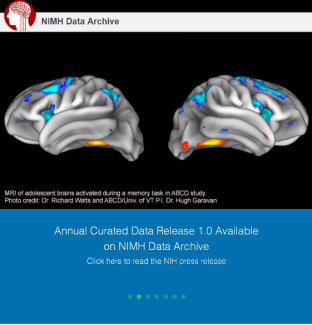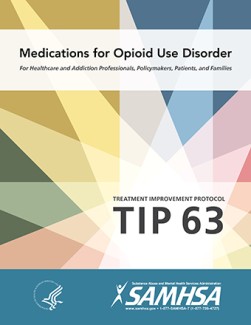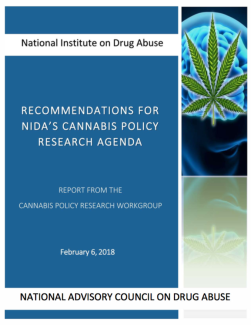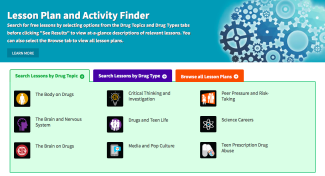Search
New Dataset Made Available from Study of Adolescent Brain Development
In February of 2018 the US National Institute of Health (NIH) released the first dataset from an "unprecedented study of adolescent brain development", the Adolescent Brain Cognitive Development (ABCD) study.
The study has, to date...
Sexual Minority Youth Continue to Smoke Cigarettes Earlier and More Often Than Heterosexuals: Findings from Population-Based Data
Research carried out in North America has highlighted differences in youth smoking habits for individuals who identify as heterosexual and those who identify as Lesbian, Gay or Bisexual (LGB).
The study builds on historical evidence to...
Stressful Experiences Affect Likelihood of Remission of Drug Dependence, Continued Drug Use, and Relapse
Researchers at the University of Michigan’s Centre for the Study of Drugs, Alcohol, Smoking and Health have been exploring the link between drug dependence, ongoing drug use, relapse and exposure to stress or experience of stressful events...
NIDA Scientists Review Impact of Smoking among Adolescents with ADHD
Research Suggests Changes to the Way Opioids Are Prescribed after Surgery Could Prevent Misuse
A team of researchers from Harvard Medical School in Boston has published a new study suggesting changes to the way opioids are prescribed after surgery could be a way to reduce misuse.
Featured in the British Medical Journal, the study Po...
New from SAMHSA: Medications for Opioid Use Disorders
Recommendations for NIDA's Cannabis Policy Research Agenda
The National Institute on Drug Abuse (NIDA) has released a new report Recommendations for NIDA's Cannabis Policy Research Agenda.
The document has been prepared by the National Advisory Council on Drug Abuse Workgroup which was formed in...
Lack of Sleep and Substance Use: A Worrying Link
Children and adolescents need more sleep than adults. A good night's sleep for those in their teens is considered to be 8.5 – 9.5 hours. Just over ¼ of US high school students get 8+ hours of sleep a night, according to the 2015 Youth Risk...
Energy Drinks, Drug Use and the Developing Brain
New research funded by the National Institute on Drug Abuse (NIDA) has found that university students who regularly consume energy drinks are more likely to develop alcohol use disorders later in life. The same students are also at greater...
Teachers and Coaches in Adolescent Social Networks Are Associated with Healthier Self-Concept and Decreased Substance Use
ABSTRACT
BACKGROUND
Poor academic (eg. “I am a bad student”) and behavioral (eg. “I am a troublemaker”) self-concepts are strongly linked to adolescent substance use. Social networks likely influence self-concept. However, little is...
Growing Up Drug Free: A Parent’s Guide to Prevention
This guide presents information on raising children to be drug free.
It includes:
- An overview of substance use among youth, with a focus on how it can affect academic performance
- Drug descriptions
- Risk factors that could make youth...
Can Drug Prevention Programmes Reduce Substance Use by Participants’ Friends?
Great Resources for Teachers
Are you a teacher? Are you looking for materials or lesson plans on the effects of drugs and drug abuse? The National Institute on Drug Abuse (NIDA) has created a great database of more than 70 teacher materials on the effects of drugs and...
Counselling Parents and Teens about Marijuana Use in the Era of Legalisation of Marijuana
Abstract
Many states have recently made significant changes to their legislation making recreational and/or medical marijuana use by adults legal. Although these laws, for the most part, have not targeted the adolescent population, they...
Treating Alcohol Addiction with Positive Relationships
A ‘therapeutic alliance’, or in other words, a positive and trusting relationship between counsellor and patient, could be the key to successful treatment of alcohol addiction, according to a new study. Patients who reported a more positive...
Are People Smoking Less and Less?
According to new findings published in the journal Tobacco Control, more than 53 million people in 88 countries have stopped smoking between 2008 – 2014 because of tobacco control measures.
Statistically, this means that during the 4-year...
Do Cognitive Processes Influence Nicotine Addiction?
A new study suggests that the way in which the human brain responds to nicotine depends on what a smoker believes about the drug’s content in a cigarette. The investigation found that smoking a cigarette that contains nicotine, but thinking...
Sweet Flavoured Tobacco Products May Influence Adolescent Smoking Habits
Younger people consider flavoured variations of tobacco products, for example, cigarettes and e-cigarettes less harmful and more appealing, according to a recent study conducted by researchers at the University of North Carolina Lineberger...
Dying for an E-Cigarette?
The use of e-cigarettes has increased dramatically in recent years. New research suggests that besides acting as a gateway to tobacco smoking, ‘vaping’ can also potentially damage your health in other ways. A study undertaken at the Keck...
Share the Knowledge: ISSUP members can post in the Knowledge Share – Sign in or become a member




